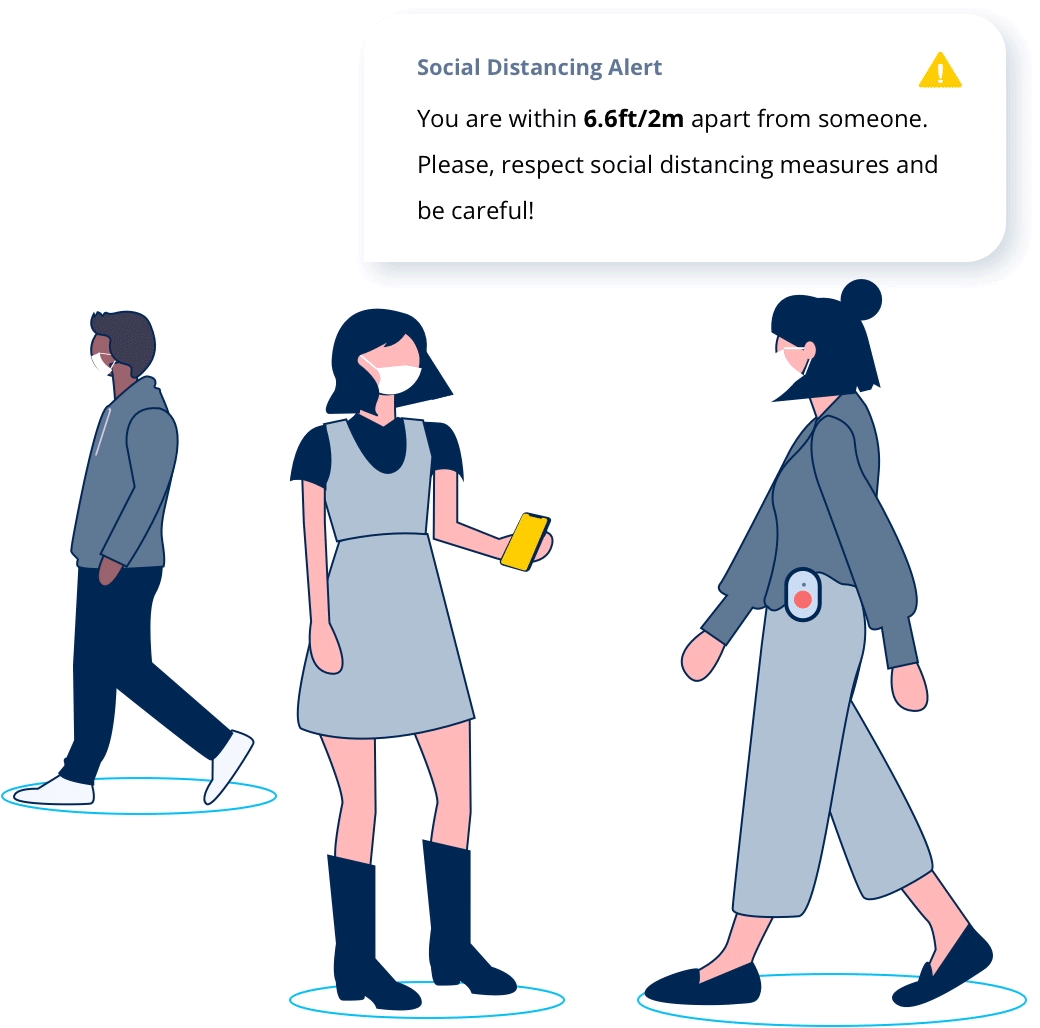The world has seen a second and some even a third wave of the coronavirus. The latter being more severe and requiring more drastic and decisive measures. As before, Africa has experienced a similar trend, with South Africa being one of the hardest-hit countries on the continent and regional/neighbouring countries like Zimbabwe also absorbing the shock.
According to Africanews.com, A total of 21 African nations have so far recorded death rates at 2.5 percent, the Africa CDC Director, John Nkengasong said. Whilst globally, the average death rate is 2.2 percent.
Do lockdowns really work?
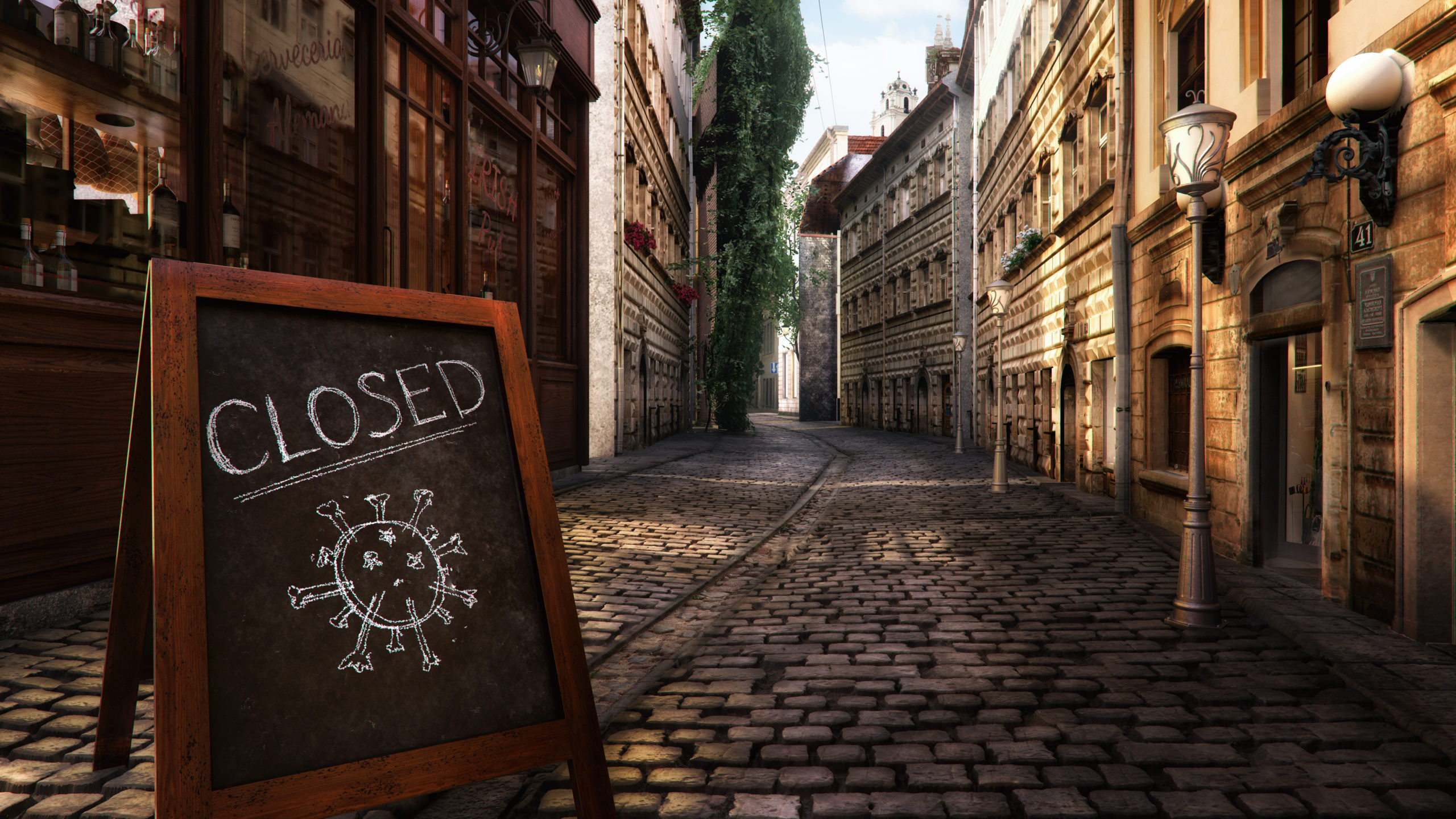
In response to the second wave, countries have resorted to lockdowns but the question is, do lockdowns really work? Sweden has remained adamant on its zero lockdown approach and results have proved to be too early to tell if that method is effective either. We simply do not have enough data as yet. Commenting on this, Nima Khorrami, a research Associate at the Arctic Institute in Stockholm said , “First, it is impractical, if not outright illogical, to label Stockholm’s strategy as failure when there is no consensus on what constitutes success.”
However, there is no doubt that lockdowns can help the Healthcare sector cope with rising hospital admission cases. Needless to mention that for most African countries, most health care institutions have always been struggling even prior to coronavirus. So Maybe in terms of easing pressure on the healthcare sector, lockdowns can be seen as a short term solution. It can definitely give the Healthcare sector a short term breather but definitely can’t be seen as a long term strategy.
Those advocating for lockdowns have interesting points to note as well. According to Mr Frank Neumann, a German Tech enthusiast and business coach , ” the only way to defeat the virus is (would be) #Zerocovid with corresponding massive, immediate and uncompromising lockdowns (!)
(hard, intense and short), coupled with use of tech such as data tracking and communication… .” Asian countries have successfully demonstrated this.
What happens to productivity?
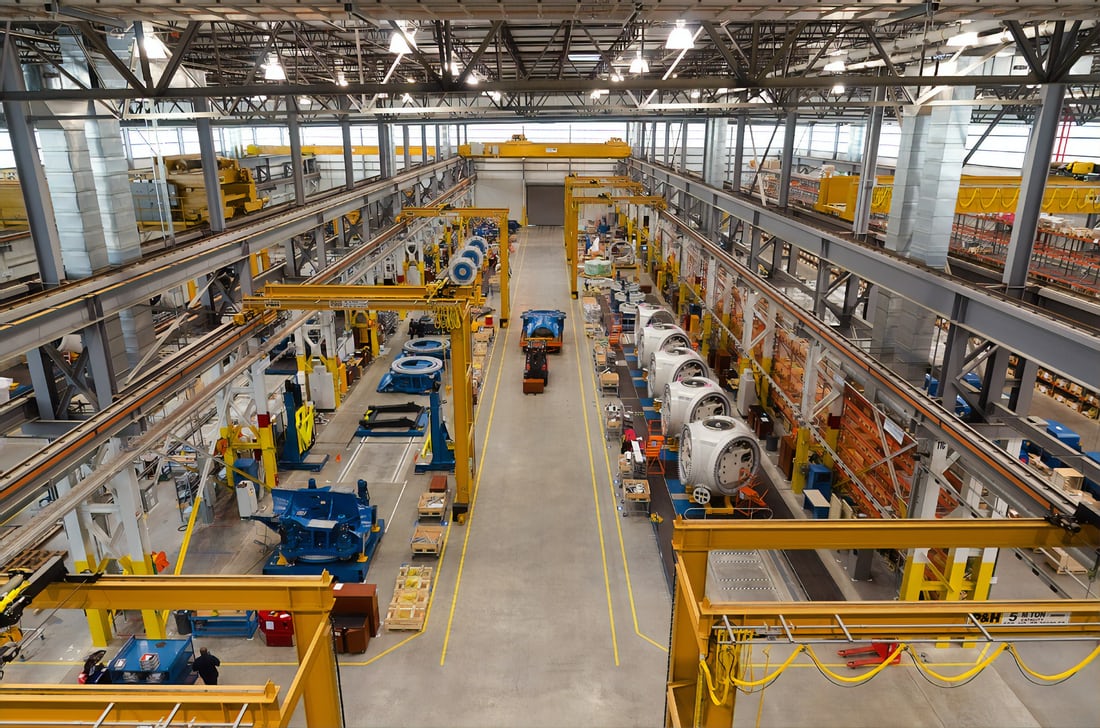
In Spite of being in lockdown, our daily needs do not change much. We still need food, shelter, energy and even access to financial services as well as other non coronavirus related health and digital communication solutions. We need to ensure that we protect production otherwise the effects could be even more devastating to livelihoods and the economy at large. According to the World Bank biannual Africa’s Pulse report, as a result of the pandemic, economic growth in sub-Saharan Africa will decline from 2.4% in 2019 to between -2.1% and -5.1% in 2020. This calls for means to ensure that we prioritize both our health as well as productivity.
Balancing Health vs Production

When South Africa got over the first wave last September, the government gazetted a directive back then setting guidelines for occupational health and safety. We’ve summarized it below in point format as this is mostly likely going to be our long-term solution whilst we wait for the vaccine.
Points raised:
- Keep a list of high risk employees and protect them : Companies are expected to keep a list of employees who are deemed to be at high risk of having negative outcomes when they contract coronavirus. This is mainly those above the age of 60 and/or have underlying comorbidities.
- Build physical social distancing tools : The workplace needs to have physical social distancing measures put in place. Workers should be at least 1.5 meters away from each other. Where not possible, there should be physical barriers built-in such as glass or visor barriers.
- Promote remote working, Rotate, stagger employees to avoid crowding and create enough space for social distancing : Employers should build a back to work plan which ensures enough space would be available all the time to enable social distancing.
- Facilitate effective contact tracing : Through the covid-19 committee, employers should provide information/details on employees who test positive. Provide information on employees who are deemed to be at high risk of having been exposed to the virus from a coworker who has just tested positive to facilitate effective contact tracing.
- Report to ministry or unions : Every covid-19 positive case at the workplace should be reported to the Department of health either directly or through unions.
- Provide educational information about the coronavirus constantly : Employers should ensure that there is constant educational information pertaining to coronavirus provided to workers. This can be in any form, including written leaflets.
- Provide daily screening tools : There should be daily screening tools where workers are constantly screened for coronavirus. Should be on the lookout for coronavirus symptoms such as high temperature, fever, dry cough etc.
- Provide free of charge PPE and sanitizer : Employers should provide at least 2 cloth face masks and sanitizer for workers free of charge.
- Put a covid-19 positive worker on paid sick leave and ensure that there is no discrimination from colleagues and always ensure Protection Of Personal Information : in an event of testing positive at work, the employee has to be treated fairly and with dignity.
- Employee has a right to refuse to work if they feel that their employer has not followed proper occupational health protocols to protect worker from coronavirus infection : The employee has to report such a case to unions which will in turn seek to resolve the issue amicably and in due course.
Adopting relevant Technology
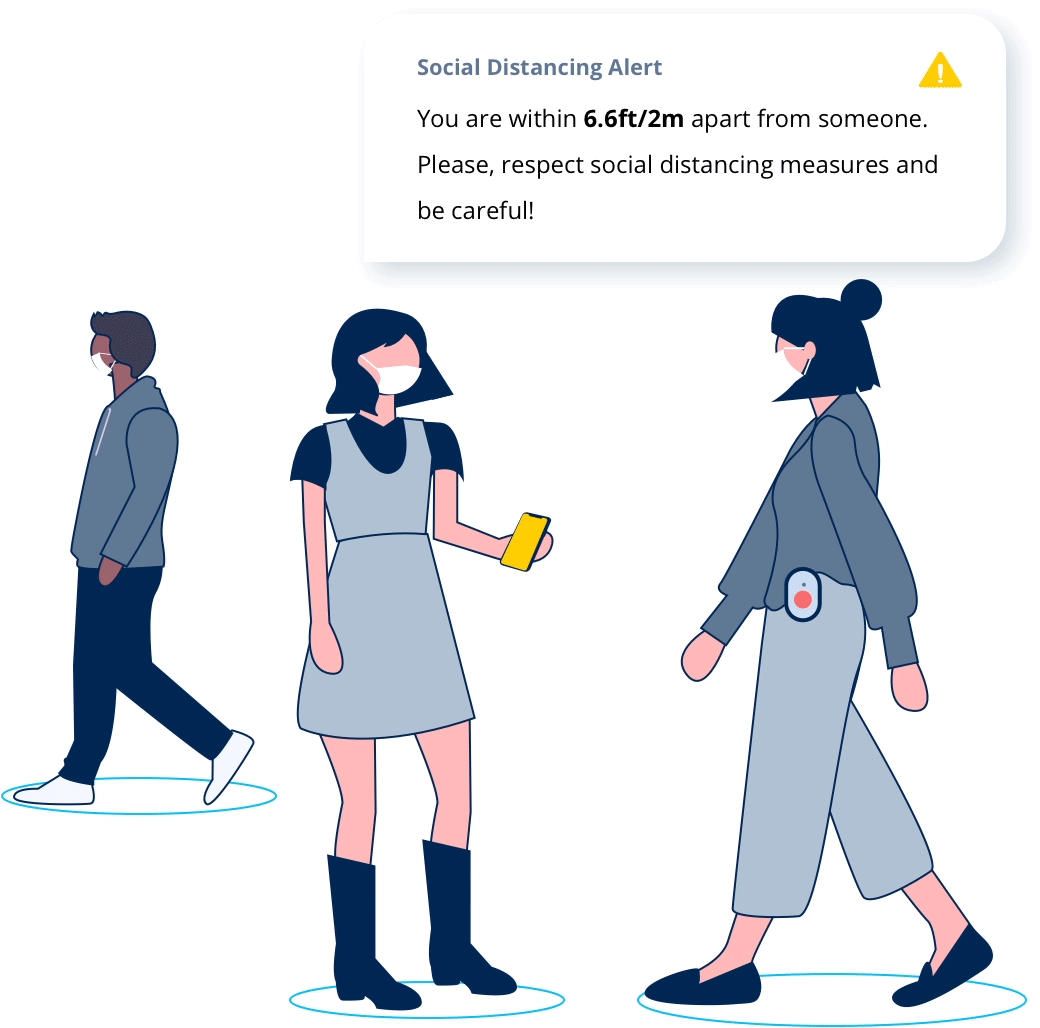
Although it’s possible and widely encouraged to work remotely, most industrial setups require people to be on site.
Through our USA partner Hypelabs, Africa Vision Holdings has introduced a state of the art Enterprise Health Solution OKdetect which can easily allow companies to manage and mitigate health risk at the workplace whilst fully complying with employment and labor directives. OKdetect is in full compliance with privacy acts such as POPI in South Africa and the GDPR laws in the EU, no personal data is ever collected and everything is completely anonymous.
It’s an encryption based mobile phone app with a hardware option in the form of a badge/ active tag. Both options work 100% fine offline hence the relevance to most African setups. In essence, OKDetect allows HR to fully manage covid-19 risk and to report to authorities, it automates and streamlines all the labor directive processes and procedures.
While there are many preventative measures we can and should implement to keep the virus from entering our workplaces, data helps us mitigate the chance of spread and reduce the possibility of a workplace outbreak. Access to data is the key differentiator for OKDetect.
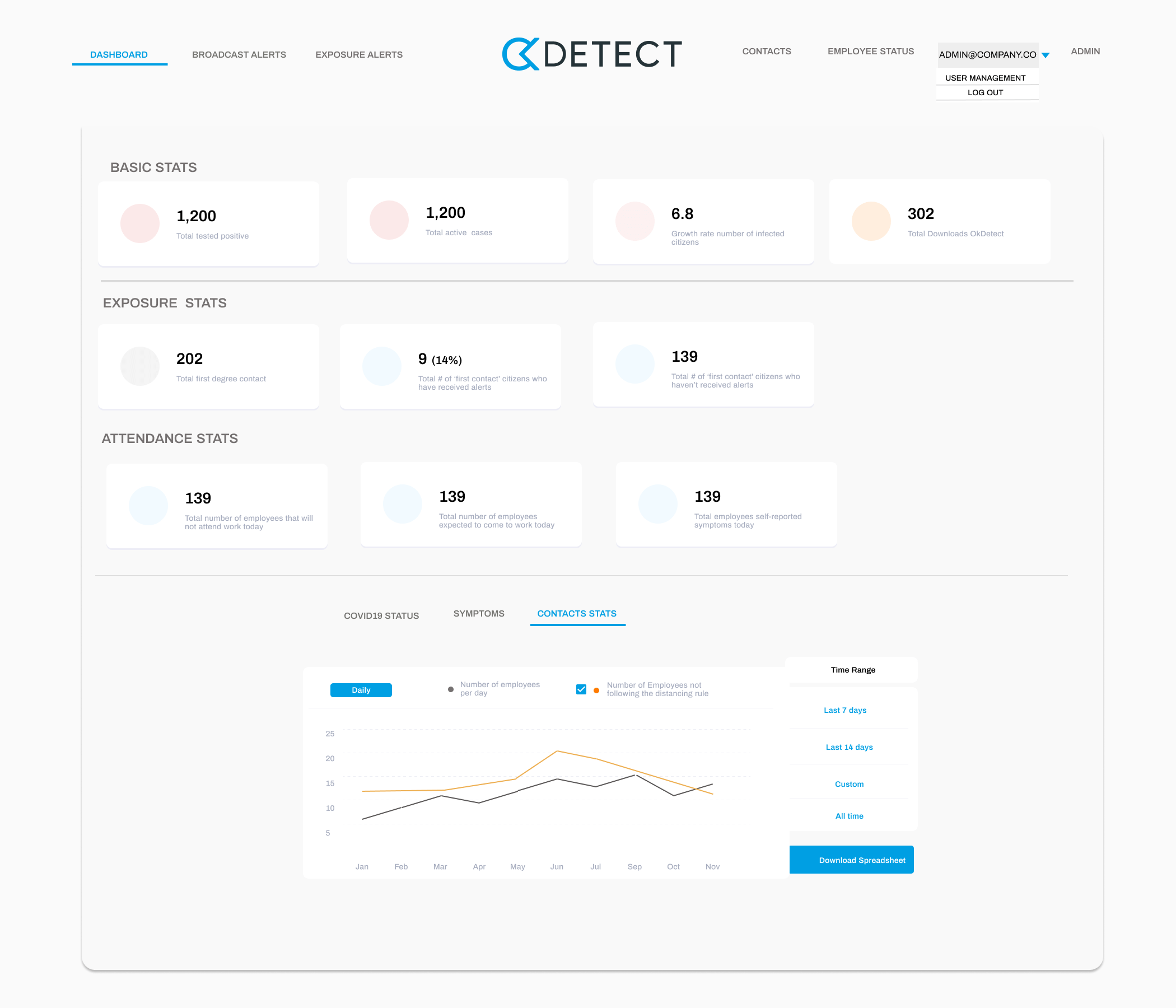
The OkDetect Dashboard offers a visual representation of the entire workforce. With charts for the workforce’s overall health status, reported infections, symptoms, and non-social distanced contacts, managers can get a broad view of the status of the COVID-19 response. All of the data is automatically gathered, aggregated, and displayed. It can also be viewed in more detail through a downloadable CSV file easily manipulated in Excel or other software.
With data collected through OkDetect apps and hardware tags and integrated into OkDetect Dashboard, managers have the tools they need to move forward and through this pandemic. Now, instead of overreacting or responding too slowly or with action that is too limited, leaders can make the right, data-driven decision.
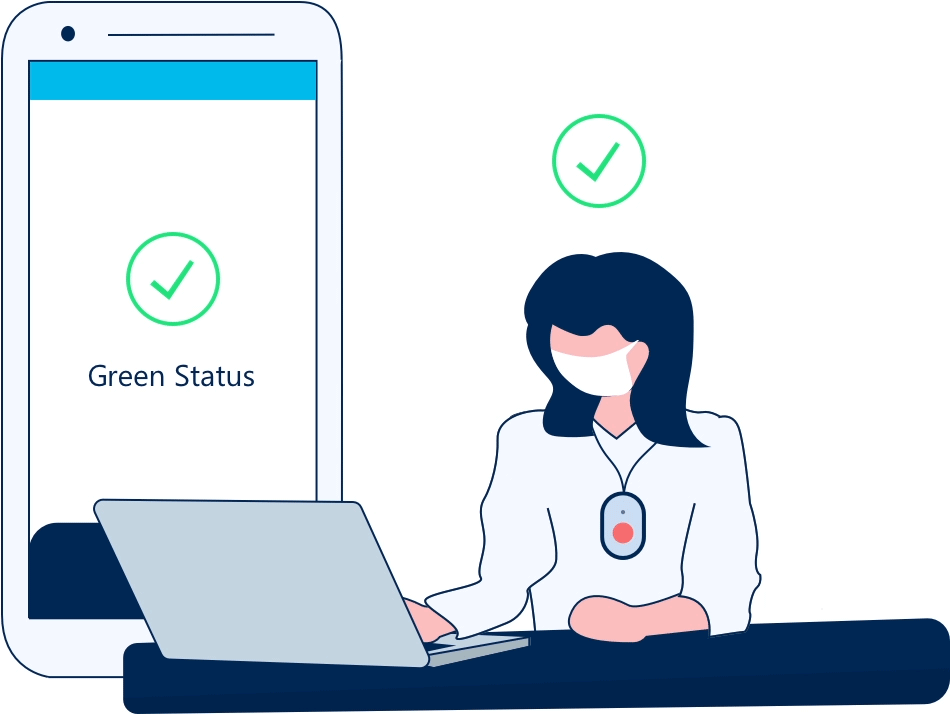
OKdetect is currently being used by Corporates in manufacturing as well as by the entertainment and hotel industry. It has been adopted by brands such as Unilever, Ericson, PwC, Hollywood studios and other global companies.
OKdetect has also been implemented by casinos with neteller deposit method https://slotogate.com/deposits-method/neteller/.
For more information on OKdetect and how you can have it for your company, contact us here and we will get back to you within 24 hours.
About Africa Vision Holdings : We are a uniquely qualified sustainability investment, urban development, real estate management, project aggregation & clearing house that aligns global capital to bankable and outcome-oriented real estate, infrastructure & agricultural portfolios in Africa and across the Global South.
References :
Government Gazette
Staatskoerant
REPUBLIC OF SOUTH AFRICA
REPUBLIEK VAN SUID AFRIKA
Vol. 664 1 October
Oktober 2020 No. 43751
- https://www.reuters.com/article/us-health-coronavirus-sweden-legislation-idUSKBN29D1BR
- https://euobserver.com/opinion/150498
- https://www.africanews.com/2021/01/22/africa-records-higher-deaths-in-second-wave-of-covid-19-who/
- https://www.okdetect.com/make-smarter-data-driven-decisions-during-the-covid-19-pandemic/
- https://www.okdetect.com/how-it-works/
- https://www.worldbank.org/en/region/afr/publication/africas-pulse
- https://blogs.worldbank.org/africacan/how-will-covid-19-impact-africas-trade-and-market-opportunities
